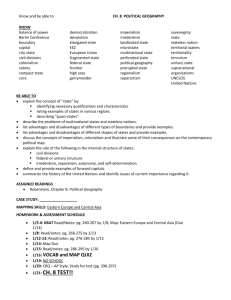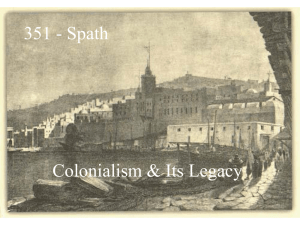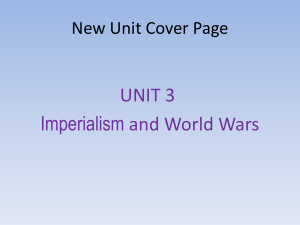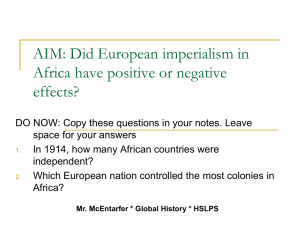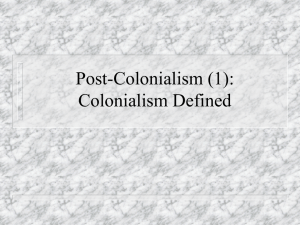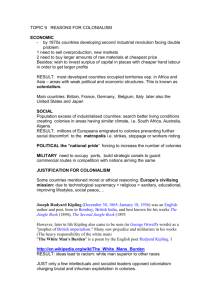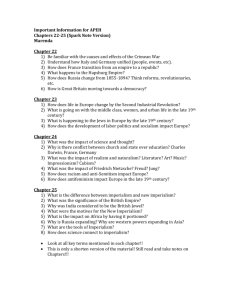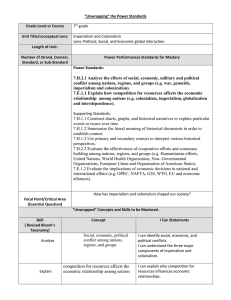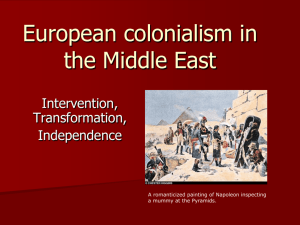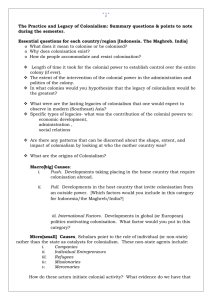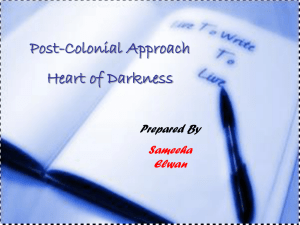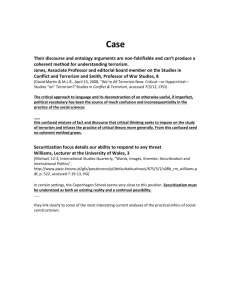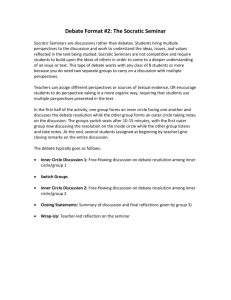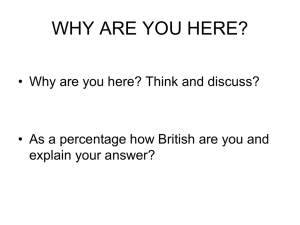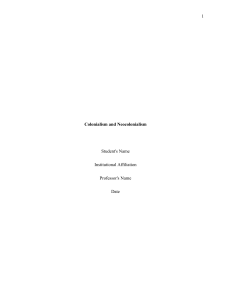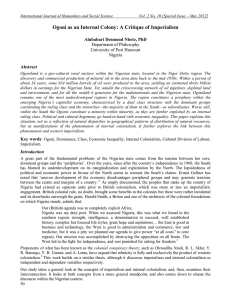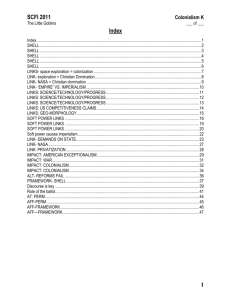What do we refer to as colonialism?
advertisement
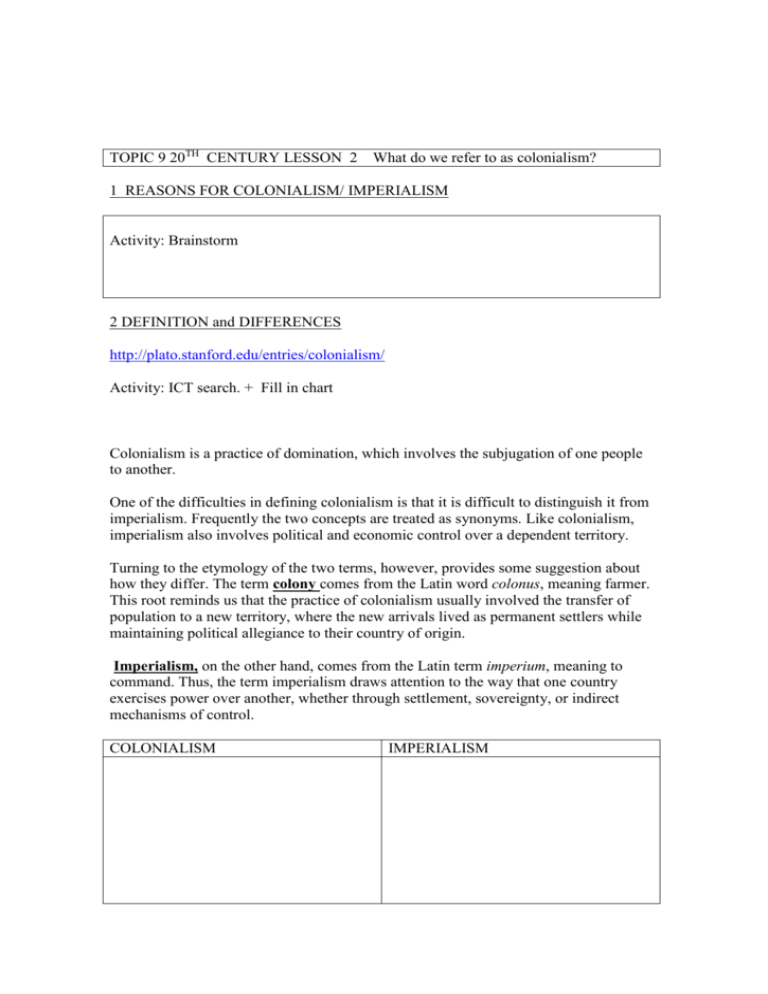
TOPIC 9 20TH CENTURY LESSON 2 What do we refer to as colonialism? 1 REASONS FOR COLONIALISM/ IMPERIALISM Activity: Brainstorm 2 DEFINITION and DIFFERENCES http://plato.stanford.edu/entries/colonialism/ Activity: ICT search. + Fill in chart Colonialism is a practice of domination, which involves the subjugation of one people to another. One of the difficulties in defining colonialism is that it is difficult to distinguish it from imperialism. Frequently the two concepts are treated as synonyms. Like colonialism, imperialism also involves political and economic control over a dependent territory. Turning to the etymology of the two terms, however, provides some suggestion about how they differ. The term colony comes from the Latin word colonus, meaning farmer. This root reminds us that the practice of colonialism usually involved the transfer of population to a new territory, where the new arrivals lived as permanent settlers while maintaining political allegiance to their country of origin. Imperialism, on the other hand, comes from the Latin term imperium, meaning to command. Thus, the term imperialism draws attention to the way that one country exercises power over another, whether through settlement, sovereignty, or indirect mechanisms of control. COLONIALISM IMPERIALISM HOW COLONIES EXPANDED The latter half of the sixteenth century witnessed the expansion of the English colonial state throughout Ireland.[9] Despite some earlier attempts, it was not until the 17th century that Britain, France and the Netherlands successfully established overseas empires outside Europe, in direct competition with Spain and Portugal and with each other. In the 19th century the British Empire grew to become the largest empire yet seen (see list of largest empires). The end of the 18th and early 19th century saw the first era of decolonization when most of the European colonies in the Americas gained their independence from their respective metropolis. Spain and Portugal were irreversibly weakened after the loss of their New World colonies, but Britain (after the union of England and Scotland), France and the Netherlands turned their attention to the Old World, particularly South Africa, India and South East Asia, where coastal enclaves had already been established The industrialization of the 19th century led to what has been termed the era of New Imperialism, when the pace of colonization rapidly accelerated, the height of which was the Scramble for Africa. During the 20th Century, the overseas colonies of the losers of World War I were distributed amongst the victors as mandates, but it was not until the end of World War II that the second phase of decolonization began in earnest. IMPERIALISM 1900
